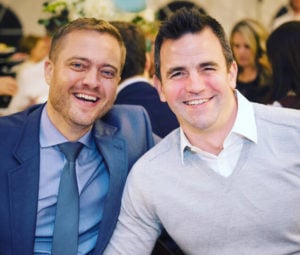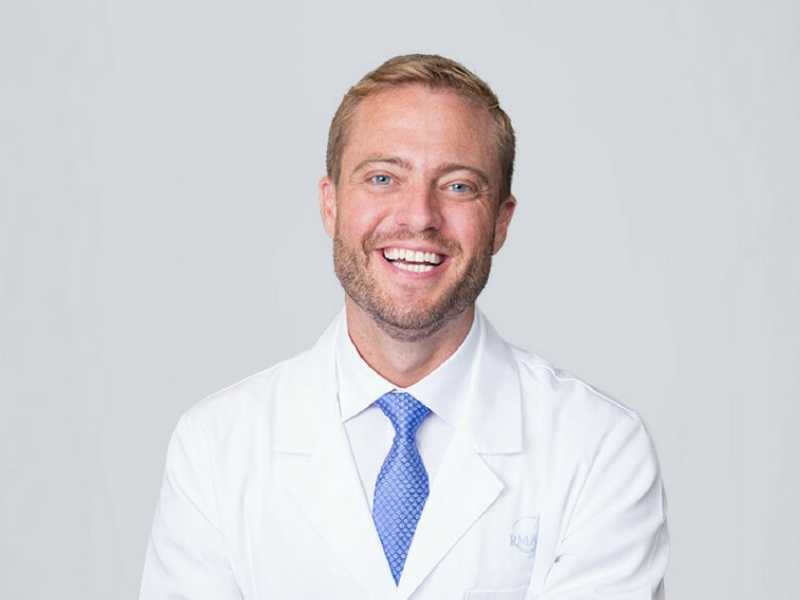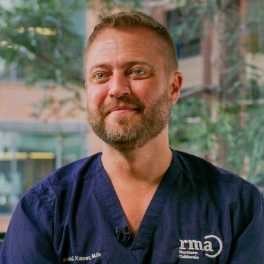UPDATE: This story has been updated to reflect that Dr. Kaser has moved to our RMA Northern California location.
For RMA Northern California doctor Dan Kaser, the decision to pursue a career in infertility was as much personal as it was professional.
While pursuing his medical degree at Dartmouth Medical School, he fell in love with reproductive endocrinology. He soon fell in love with his husband there, too. Dr. Kaser knew he wanted to start a family one day, and would need help doing so. It was when these professional interests intersected with his own need for assisted reproduction that he realized the field of infertility was his calling.
“I knew my husband and I would need an egg donor and gestational carrier to start our family, so my personal and professional interests quickly aligned,” Dr. Kaser said.
He hasn’t looked back since – especially because he’s been so busy with joining the budding new RMA Northern California practice in San Francisco and Palo Alto. They are one of the newer fertility centers in the area, complete with a world-class embryology lab.

After completing his OB/GYN residency and a subsequent fellowship in infertility at Harvard Medical School, Dr. Kaser joined RMANJ to help open a new office in New Jersey before moving out to California to join Dr. Jonathan Kort and Dr. Scott Morin.
Since then, he’s been taking care of all types of patients: those interested in fertility preservation, patients struggling with infertility in need of Intrauterine Insemination (IUI) or In Vitro Fertilization (IVF), and single and LGBTQ patients exploring their path to parenthood.
With a focus on Third Party Reproduction and LGBTQ Services, Dr. Kaser has a special focus on those who need the help of an egg, sperm or embryo donor, and/or gestational carrier, to have a child.
“I help the third party team screen potential donors and carriers in accordance with federal guidelines, manage patients currently in a treatment cycle, and oversee program development, policy, and implementation,” Dr. Kaser said. “Third-party, or collaborative reproduction, is the fastest-growing type of treatment among fertility patients, so it’s an exciting time to be involved.”
At RMA Northern California, more than ten percent of IVF cycles involve a third party – those figures are representative of national trends and are increasing. According to the Centers for
Disease Control and Prevention, the number of IVF cycles with donor egg increased approximately 27 percent from 2005 to 2014. Over that same period, the number of IVF cycles involving a gestational carrier nearly doubled.
There are several reasons Dr. Kaser – and other reproductive endocrinologists – are seeing more patients access third-party care. As more patients delay starting their family due to other life circumstances, the natural age-related decline in fertility is becoming a primary hurdle that can sometimes only be overcome with the help of an egg donor. Also, as it becomes more socially acceptable, more single and gay patients are starting families, and finally, more international patients are traveling here from other countries, where these treatments are more restricted or illegal.
“What a family looks like these days is evolving,” Dr. Kaser said, “and our Third-Party team proudly supports our patients on their unique paths to parenthood.”
“No matter who you are, if you want to start a family, we can help you.”





